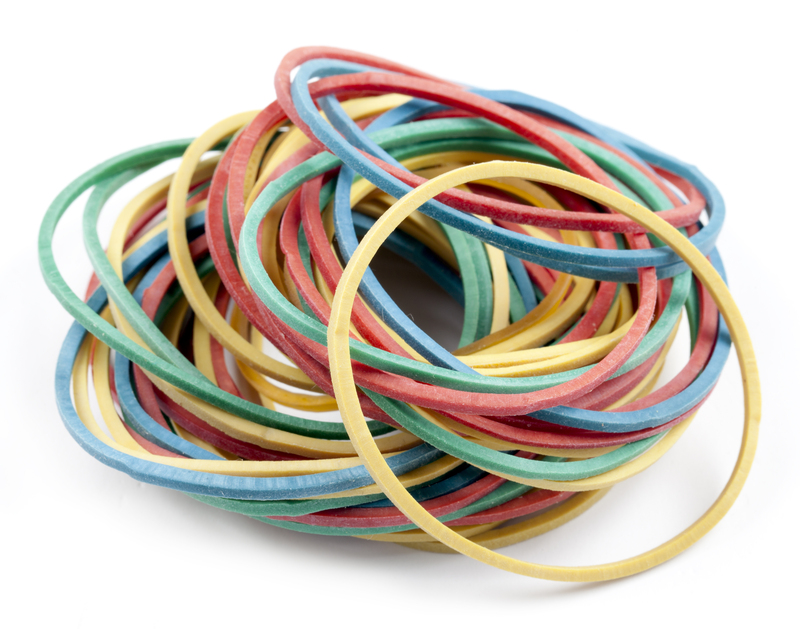Discover Top Tips To Enhance Home Recycling Efforts
Are you eager to make a bigger impact with your household recycling? Want to know how to boost your home recycling efficiency and create a greener future? Discover top tips to enhance home recycling efforts with this expert guide!
Why Home Recycling Matters
Recycling at home isn't just a trend; it's a vital part of reducing waste and conserving resources. When you improve home recycling practices, you help conserve energy, reduce landfill use, and minimize environmental pollution. In an age where every action counts, effective home recycling is your opportunity to contribute locally while having a global impact.
Key Benefits of Effective Home Recycling
- Reduces landfill waste: Proper sorting and recycling reduce the volume of trash sent to landfills.
- Saves natural resources: Using recycled materials conserves precious raw materials like timber, water, and minerals.
- Protects the environment: Less landfill use means lower greenhouse gas emissions and decreased habitat destruction.
- Supports the circular economy: Recycling contributes to new products, stimulating green jobs and innovations.

Understanding the Basics: What Can Be Recycled At Home?
Knowing exactly what you can recycle at home is fundamental. While recycling rules may vary by location, many items are widely accepted in curbside programs. Here's a helpful list to guide your efforts:
- Paper and Cardboard: Newspapers, magazines, cereal boxes, paper mail, and cardboard packaging.
- Glass: Bottles and jars (empty and rinsed).
- Metals: Aluminum cans, steel food tins, and foil.
- Plastics: Bottles, containers, and jugs - pay attention to the recycling codes (usually #1 and #2 are widely accepted).
Pro Tip: Always check your local recycling guidelines to ensure your items are accepted. Contaminated or improperly sorted items can ruin entire batches of recyclables.
Common Mistakes to Avoid in Home Recycling
- Recycling dirty containers - always rinse them first.
- Bagging recyclables in plastic bags - most programs do not accept plastic bags.
- Including non-recyclable items, such as pizza boxes with food residue, styrofoam, or certain plastics (#3-7 in some areas).
Top Tips To Boost Home Recycling Efforts
1. Create a Smart Recycling Station at Home
Set up a designated recycling area in your home. Use labeled bins for different materials: paper, plastic, metal, and glass. Place your station in a convenient and accessible spot, such as the kitchen, garage, or utility room. This encourages household members to sort responsibly and makes recycling a natural habit.
- Label bins clearly for easy recognition.
- Use color codes to help children learn quickly.
- Keep the area tidy to prevent odors and pests.
2. Educate Your Household
Make home recycling a family affair. Explain the importance of recycling to everyone in the household - from kids to adults. Use posters with recycling symbols or fun charts to teach which items go where. Consistent reminders and educational materials help build strong recycling habits over time.
3. Rinse and Clean Your Recyclables
Food residue and liquids can contaminate entire batches of recycling. Take a moment to rinse jars, cans, and bottles before placing them in your bin. This small action greatly enhances the quality of recyclables and ensures they can be processed effectively.
4. Reduce and Reuse Before Recycling
Remember the mantra: Reduce, Reuse, Recycle. Try reusing jars for storage or repurposing boxes for crafts before tossing them in the recycling bin. Buying products with minimal packaging or opting for reusable items, like cloth bags and glass water bottles, can significantly cut your household waste.
- Shop in bulk to minimize packaging.
- Opt for reusable containers instead of disposables.
- Donate unwanted clothes and items instead of discarding them.
5. Learn About Local Recycling Rules and Updates
Each municipality has distinct recycling rules and accepted materials. Stay informed through local authority websites, newsletters, or community groups. Some recycling centers update their acceptable materials list regularly - keeping up-to-date means you'll never wonder if you're recycling correctly.
6. Compost Organic Waste
Organic waste, such as fruit peels, vegetable scraps, and coffee grounds, can make up a significant portion of household waste. Composting these items at home can reduce your landfill contribution while generating rich fertilizer for your garden. Start a compost bin in your backyard or explore small indoor composters.
- Compost these: Fruits, vegetables, eggshells, coffee grounds, and tea bags.
- Avoid composting: Meat, dairy, oils, and heavily processed foods.
7. Recycle E-Waste Responsibly
Old electronics, batteries, and light bulbs should NEVER be placed in standard recycling bins. Instead, participate in local e-waste collection days or drop-off events. Many electronics retailers and community centers accept e-waste for safe disposal or recycling. Properly handling electronic waste prevents hazardous materials from polluting the environment.
8. Repurpose Unwanted Items
Before recycling, ask yourself if an item could be reused or given a second life. Glass jars can become vases, boxes can serve as organizers, and old T-shirts can be cut into cleaning rags. Get creative with upcycling to extend the life of everyday items!
How To Encourage Consistent Recycling Habits
Building and maintaining strong recycling routines can be challenging at first, but with persistence and the right strategies, it becomes second nature. Here's how to reinforce your efforts:
- Set family recycling challenges or reward systems for consistent participation.
- Share your progress on social media to inspire friends and neighbors.
- Join local community clean-up or recycling drives for added motivation.
- Monitor your waste output regularly to track improvements.
Teaching Children About Recycling
Teaching children the importance of recycling is essential for cultivating lifelong eco-conscious habits. Make it engaging by:
- Involving them in sorting and cleaning recyclables
- Reading books or watching educational videos about recycling
- Organizing fun arts and crafts using recycled items
- Visiting local recycling facilities for a hands-on learning experience
Advanced Home Recycling Tips
Separate Soft Plastics For Specialized Recycling
Many curbside programs don't accept soft plastics, such as plastic bags and cling film. Collect these separately and deliver them to supermarket drop-off points or participating retailers, where available. This extra step ensures even more materials are properly recycled instead of ending up in landfills.
Track Your Recycling Progress
Keep a simple log or use a home recycling app to monitor your efforts. Tracking how much you recycle can be rewarding and helps identify areas for improvement. Some apps even provide reminders, recycling facts, and local updates to keep you on track.
Attend Community Workshops and Events
Many communities offer workshops on recycling, composting, and waste reduction. These events are great opportunities to learn, connect with neighbors, and share tips for enhancing home recycling efforts.
Combating Contamination: Quality Over Quantity
While recycling more is important, recycling correctly is crucial. Make sure you:
- Remove lids and caps before recycling bottles and jars, unless specified by your program.
- Flatten cardboard boxes to save space and make handling easier.
- Avoid recycling hazardous items like oily pizza boxes, electronics, or sharp objects via curbside bins.
Reducing contamination in your recycling stream improves processing efficiency and increases the overall amount of waste that is successfully recycled.

Get Involved: Advocate and Spread Awareness
Extend your positive impact by becoming a recycling advocate. Share your success stories with friends, neighbors, and online communities. Consider:
- Organizing neighborhood recycling groups
- Hosting awareness events to educate others about the importance of home recycling
- Supporting businesses and brands that prioritize sustainable, recyclable packaging
Staying Informed: The Future of Home Recycling
Technology and regulations in the recycling sector are constantly evolving. Stay ahead by subscribing to newsletters or following reputable environmental organizations online. The introduction of innovative recycling methods, improved labeling, and extended producer responsibility will further empower households to make a difference.
Conclusion: Small Steps, Big Impact
Enhancing your home recycling efforts doesn't have to be overwhelming. By following these top tips and making gradual improvements, you'll reduce your environmental footprint and help build a cleaner, greener planet for future generations. Whether you're starting small or looking to advance your efforts, remember that every recycled bottle, can, and paper makes a difference.
Ready to join the movement? Start implementing these proven strategies to supercharge your home recycling today!
If you found this guide on top tips to enhance home recycling efforts helpful, share it with your family and friends. Together, we can make sustainable living the new norm!